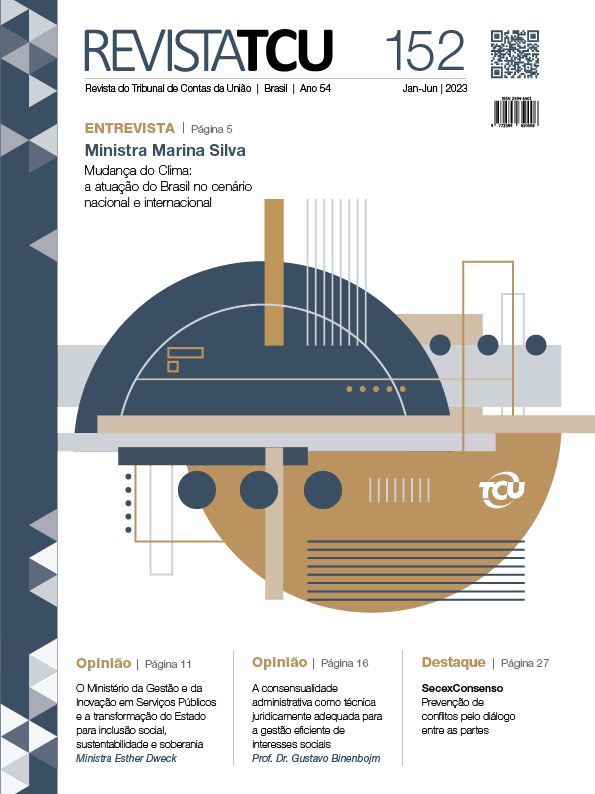O controle dos atos discricionários pelo Tribunal de Contas da União

Resumen
O presente estudo visa avaliar o exercício do controle externo, conferido constitucionalmente ao Tribunal de Contas da União por meio dos artigos 70 e 71 da Carta Magna, em contraposição ao poder discricionário atribuído aos órgãos e entidades da Administração Pública. Busca-se, mediante pesquisa de natureza qualitativa, esclarecer em que consiste o poder discricionário, seus limites, alcance, e como se dá o controle judicial. Para tanto, são abordadas a competência, a natureza e a jurisdição do TCU, assim como a abrangência do controle externo sobre atos de natureza discricionária, colacionando-se alguns precedentes da Corte de Contas acerca do tema, para demonstrar sua atuação. Conclui-se que, não obstante caber à Administração Pública, sob os critérios da conveniência e oportunidade, e com base no princípio da eficiência, definir seus interesses, até mesmo o poder discricionário deve sujeitar-se ao controle, a fim de evitar possíveis omissões, excessos ou insuficiência na atuação dos órgãos e entidades envolvidos, viabilizando, assim, a concretização do princípio constitucional da supremacia do interesse público, que deve nortear a atuação dos agentes públicos.
Biografía del autor/a
Marcos Vinicius Pinheiro Oliveira
Graduado em Economia pelo Centro Universitário de Brasília e em Direito pelo Centro Universitário Unieuro. Pós-graduado em Análise Econômica do Direito pelo Instituto Serzedello Corrêa e auditor federal de Controle Externo no Tribunal de Contas da União.